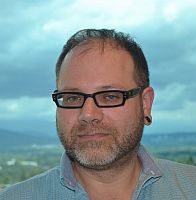DOWNLOAD A COPY OF: ” Living Water Smart in British Columbia: Build the network to achieve mission impact” – released by the Partnership for Water Sustainability in February 2024

“In the early 2000s, when I was on the faculty at the Harvard Business School, I began my research into the concept of a networked approach that is more focused on network-building and trust-based relationships, and less about building an organization to get to your mission impact. The network emerges around a common goal, rather than a particular program or organizational model. The community mobilizes the resources from throughout the network and does this based on existing relationships in the community,” stated Dr. Jane Wei-Skillern, co-author of The Networked Nonprofit.
CONVENING FOR ACTION IN METRO VANCOUVER: “More than ever, we need stronger champions and people who believe in what they are doing at heart,” stated Ramin Seifi, former General Manager of engineering and planning with Langley Township in the Metro Vancouver region

“A presentation many years ago by UBC professor Patrick Condon put me on the path to integration. Patrick’s storytelling made me realize that everything we do has an effect somewhere else. What Patrick said in his presentation was eye-opening and oh so impactful,” recalled Ramin Seifi. “Patrick Condon was ahead of his time in connecting dots. He inspired me to think about HOW we could integrate departments and disciplines in order to have a holistic view of our community; and then, HOW to implement a vision that would be self-fulfilling and self-sustaining over time.”
DOWNLOAD A COPY OF: “Living Water Smart in British Columbia: Instill a culture to support champions” – released by the Partnership for Water Sustainability in February 2024

Ramin Seif is a visionary leader. At the Township of Langley Township, he carved out a one-of-a-kind role as general manager of a portfolio that combined planning and engineering. His dual role was an essential ingredient in enabling organizational integration, horizontally and vertically. “What we do as individuals, as engineers, as community builders to effect change is very much dependent on education, raising awareness, and developing a culture. And I think that is the story of Langley. We developed a culture that future generations can now take forward,” stated Ramin Seifi.
CONVENING FOR ACTION IN METRO VANCOUVER: “Without deep knowledge and an understanding of history, proposed courses of action may be ineffective or unimplementable,” stated Robert Hicks, a career engineer-planner in local government in the Metro Vancouver region

“Superficial understandings do not get you to the solutions for complex problems. To get to that complexity, you have to know the background, you have to know the history, you must have DEEP KNOWLEDGE. We are a stage where we have stretched systems to the point where we no longer have those big margins or safety factors that we had in the past. We are bumping up against an infrastructure shortage. Systems are maxed out to the breaking point,” stated Robert Hicks.
ARTICLE: “Sustainable Service Delivery: Solutions to Complex Problems Require Deep Knowledge” (Asset Management BC Newsletter, Winter 2024)

“In a system, everything is connected. That is a key message. The systems perspective is not a new idea. John Muir, known as the father of the American national parks system, was an exponent of systems thinking in the late 1800s. Housing supply, affordability, and home ownership. Health care. Crime. Sustainable and affordable funding for municipal infrastructure over generations. Water supply and food security. Agricultural land and food security. Weather extremes, creek system integrity, and risk management in the urban landscape. All are connected,” stated Kim Stephens.
DOWNLOAD A COPY OF: “Living Water Smart in British Columbia: Keep it simple, practical and implementable” – released by the Partnership for Water Sustainability in February 2024

Melony Burton’s actions in driving positive change are guided by her no-nonsense approach to keeping it simple, practical and implementable. She is results-based and has a history of accomplishment with three local governments. Her responsibilities encompass the entire infrastructure portfolio. “I have leveraged my career into a position that allows me to have more influence and positive change. This came, in part, from channeling the frustration at being limited in the role I was in. When you are comfortable, you are not motivated to make a change,” explains Melony Burton.
DOWNLOAD A COPY OF: “Living Water Smart in British Columbia: Caring for the land means going beyond just doing enough” – released by the Partnership for Water Sustainability in January 2024

“Streams need a place to be. If we cannot get our heads around that, we are not going to keep our streams. EAP provides a value picture of a stream system as a land use. Because nature is a system, you cannot slice and dice it. EAP, the Ecological Accounting Process, recognizes this and is a financial tool to give streams the support they need to survive in the local government setting. Think of Blue Ecology as a compass in terms of how it relates to a water-first approach. We are on a journey. The compass points the way forward. EAP is an expression of Blue Ecology.” stated Tim Pringle.
A 3-YEAR STRATEGY FOR ENSURING CONTINUITY OF THE PARTNERSHIP NETWORK: “We have started to engage government with training and will continue through 2024. It is full speed ahead,” stated Ted van der Gulik in his President’s Perspective (Annual Report 2023, Partnership for Water Sustainability in BC)

“A challenge confronting our society is widespread organizational amnesia. The baby boomers have more or less gone out the door. And with them has gone so much oral history. Knowledge and experience are not being passed on. Organizational amnesia is the consequence. It is a race against time to pass on knowledge and experience. It feels like the gap caused by loss of understanding is widening. When those coming into organizations do not know what they do not know, loss of understanding of the WHAT, WHY and HOW is a cause of concern in managing expectations,” stated Ted van der Gulik.
DOWNLOAD A COPY OF: “Living Smart in British Columbia: There is no time to re-invent the wheel” – released by the Partnership for Water Sustainability in January 2024

Ray Fung captured the mood of the summit with this summation: “The Partnership is seen as a resource that is stable, that is there, and that people can draw upon. I liked the comment that THIS IS A MOVEMENT. I find that is really inspiring to not see ourselves just as a network. We leave the summit inspired to figure out how the FORM of the Partnership will follow the FUNCTION. We can learn things from expanding our perspective. Part of that holistic approach includes the SPIRITUAL as well as the physical connection to the land.”
DOWNLOAD A COPY OF: “Living Water Smart in British Columbia: Solutions to complex problems require deep knowledge” – released by the Partnership for Water Sustainability in January 2024

“The notion of a superficial understanding explains the challenge that I am seeing. There are post-2000 graduate engineers coming out of university who are familiar with green infrastructure ideas and concepts, but they do not know the details behind them: details that they did not have to know at university or in their previous jobs. But without the background and history, can they really appreciate the complexity of interactions in a whole-systems approach and why certain targets and approaches were selected while others were not? This is why it is so important to find a way to pass on information and deep knowledge,” stated Robert Hicks.

